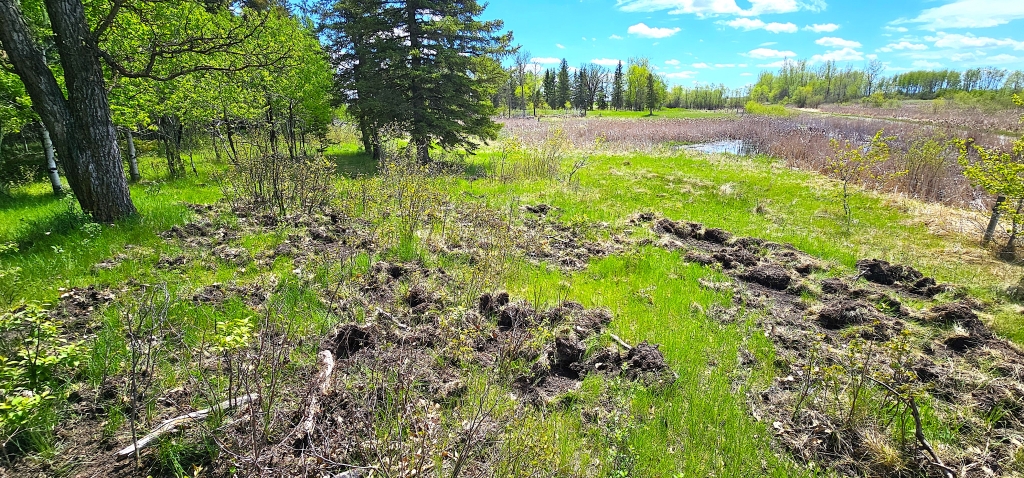
Photo courtesy of Devon Baete
Dr. Wayne Lees, the Coordinator of Squeal on Pigs Manitoba, said eradication processes and plans will eliminate the province’s feral pig population.
The Squeal on Pigs launched the campaign in Manitoba in 2022 to inform the public about the damage caused by wild pigs and what to watch for and to provide a mechanism to report sightings.
Following the first Canadian Wild Pig Summit held in Brandon, MB, from April 22 to April 24, Dr. Lees outlined the four takeaways from the international wild pig summit.
Here are the four takeaways:
Wild Pigs are an Invasive Species: They do not belong in our environment and cause significant damage to environmental health, animal health, and human safety. Efforts are needed to control and eventually eliminate their population.
Provincial Management Programs: Each province has programs to manage the wild pig population. While these programs operate differently, they share the same principles: controlling and eliminating the population.
Public Involvement is Crucial: Public participation is key in controlling wild pigs, and reporting sightings is essential. For example, in Manitoba, the “Squeal on Pigs” website (www.squealonpigsmv.org) helps alert authorities to pig locations, aiding in their management.
Persistent Efforts Can Succeed: With determination and time, it is possible to eliminate wild pigs as an invasive species from the province. Continued efforts and public cooperation give hope this will happen within a decade.
In another presentation to the AGM of Manitoba Pork, Dr. Lees expanded on the effects of wild pigs and the damage they cause.
“They affect animal health, and those risks are mainly due to their ability to transmit diseases,” he said. “There’s an environmental risk and a human safety risk because these animals can be quite aggressive, and if they get cornered, they can pose a risk to human safety.”

Dr. Lees said the most well-known wild pig populations are likely in the southern U.S.
In those southern states, wild pigs are really out of control. Their populations are estimated to be in the millions, and they cause a lot of damage.
“Our situation in Canada is a bit different,” he said.
The Eurasian wild boar brought into this country in the 1980s and 1990s have escaped or were released and now have established breeding populations, usually in the province’s agricultural or semi-agricultural areas.
“Our pigs tend to survive the winter much better. These wild pigs in Canada adapt well to the cold climate conditions, so our strategies must be different.”
In this country, they tend to travel in smaller groups, travel around more, and are more elusive—they’re more challenging to find than pigs in the U.S.
Dr. Lees said the issue of wild pigs is severe, and people should take them seriously. Wild pigs cause significant damage, but the greatest concern is their potential threat. If they were to carry a foreign animal disease, eradicating that disease from the country would be extremely difficult. “This is particularly concerning because Canada is a trading nation, heavily reliant on exporting pork products. Canada exports about 70 per cent of its pork products, and Manitoba, in particular, exports 90 per cent.”
Maintaining these trading relationships is crucial, making controlling wild pigs and preventing disease transmission an essential priority. •
— By Harry Siemens





